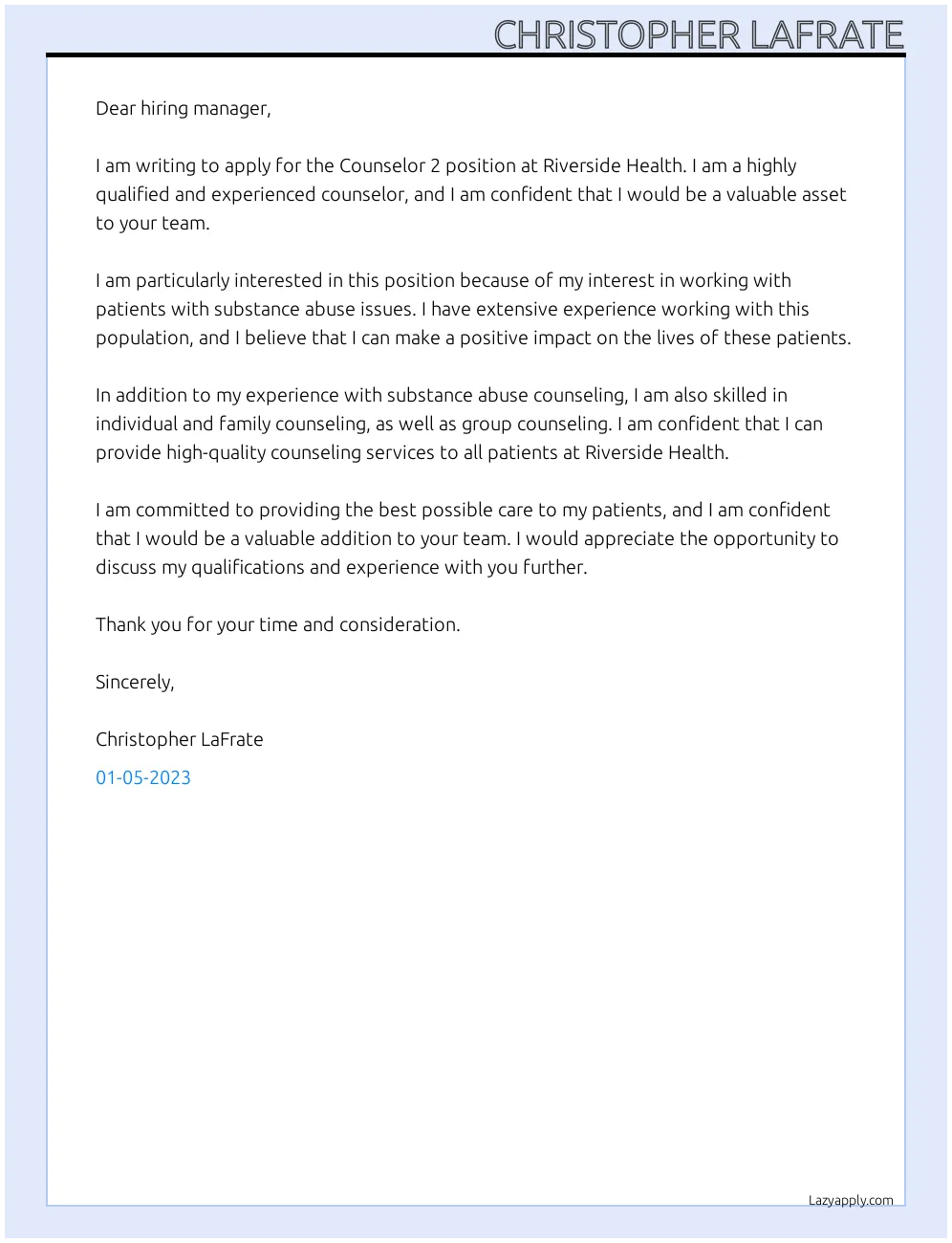Understanding the Importance of a Counselor Cover Letter
In the competitive field of counseling, a well-crafted cover letter can be the key to unlocking your dream job. It’s your first chance to make a positive impression on potential employers and set yourself apart from other qualified candidates. A compelling cover letter isn’t just a formality it’s a powerful tool that showcases your unique skills, experience, and passion for helping others. This article will help you create a cover letter that highlights your qualifications and makes you stand out.
Why a Cover Letter Matters for Counselors
A cover letter is a valuable opportunity to go beyond the basics of your resume. It allows you to articulate your career goals, explain your motivations for applying, and demonstrate how your skills and experience align with the specific requirements of the position. For counselors, a cover letter provides a platform to highlight your empathy, communication skills, and understanding of ethical boundaries all crucial attributes for success in this profession. It’s your chance to convey your genuine interest in the organization and its mission, showing that you’re not just looking for a job, but that you’re passionate about making a difference in the lives of your clients.
Highlighting Your Skills and Experience
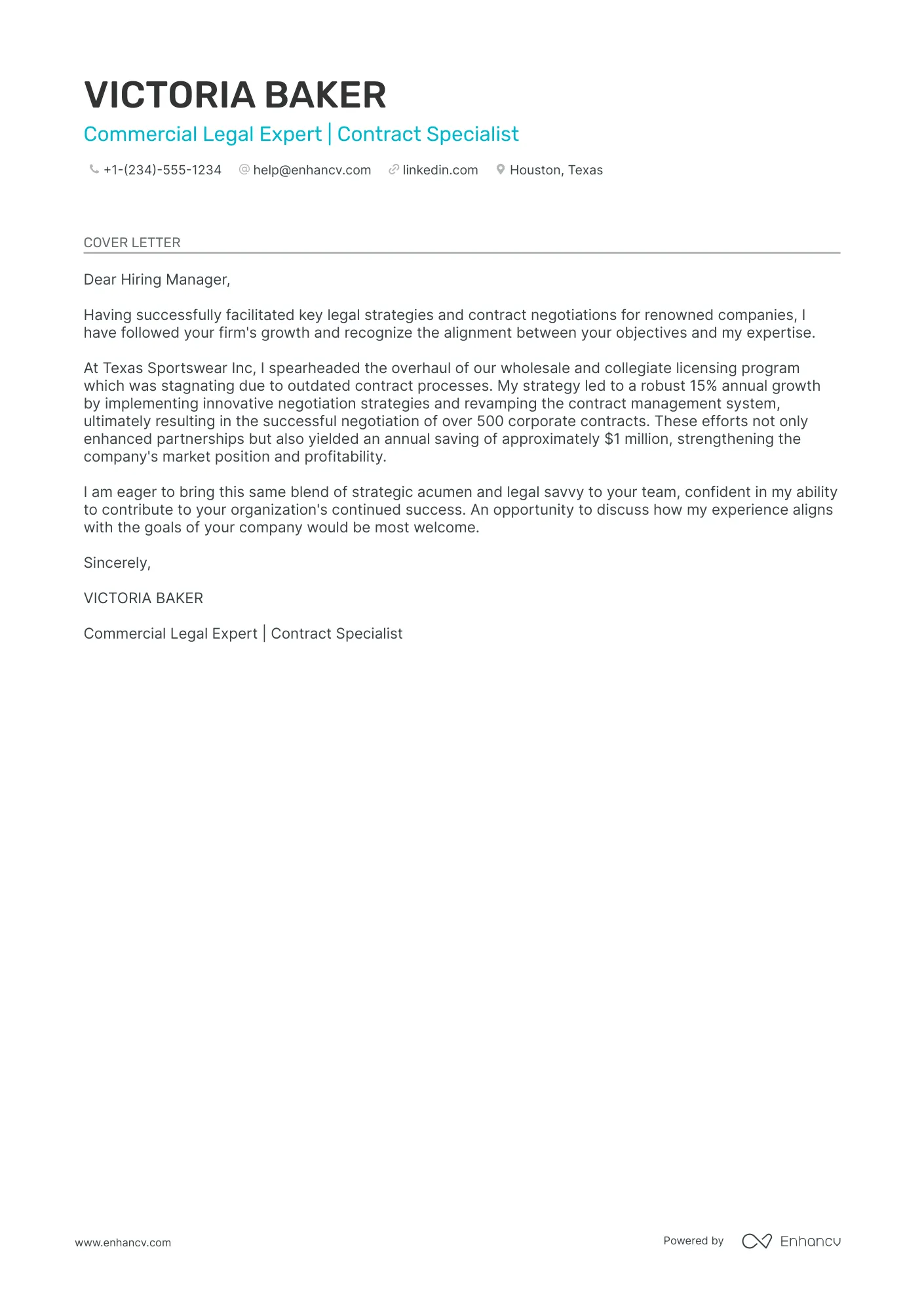
Your cover letter should be a tailored snapshot of your professional self, showcasing your most relevant skills and experiences. Don’t just list your qualifications; demonstrate how you’ve applied them to achieve positive outcomes. Use concrete examples to illustrate your abilities. For instance, instead of saying you’re a good listener, describe a situation where you actively listened to a client and helped them overcome a specific challenge. Emphasize your experience working with diverse populations, and demonstrate your knowledge of different therapeutic modalities and approaches. This allows the hiring manager to see you as a confident and skillful counselor.
Key Elements to Include in Your Counselor Cover Letter
Contact Information and Salutation
Begin your cover letter with your contact information, including your name, address, phone number, and email address. Then, address the letter to the hiring manager by name, if possible. Research the organization to identify the appropriate person. If you cannot find a specific name, use a professional salutation such as Dear Hiring Manager. A personalized salutation demonstrates your attention to detail and initiative.
Professional Summary or Objective
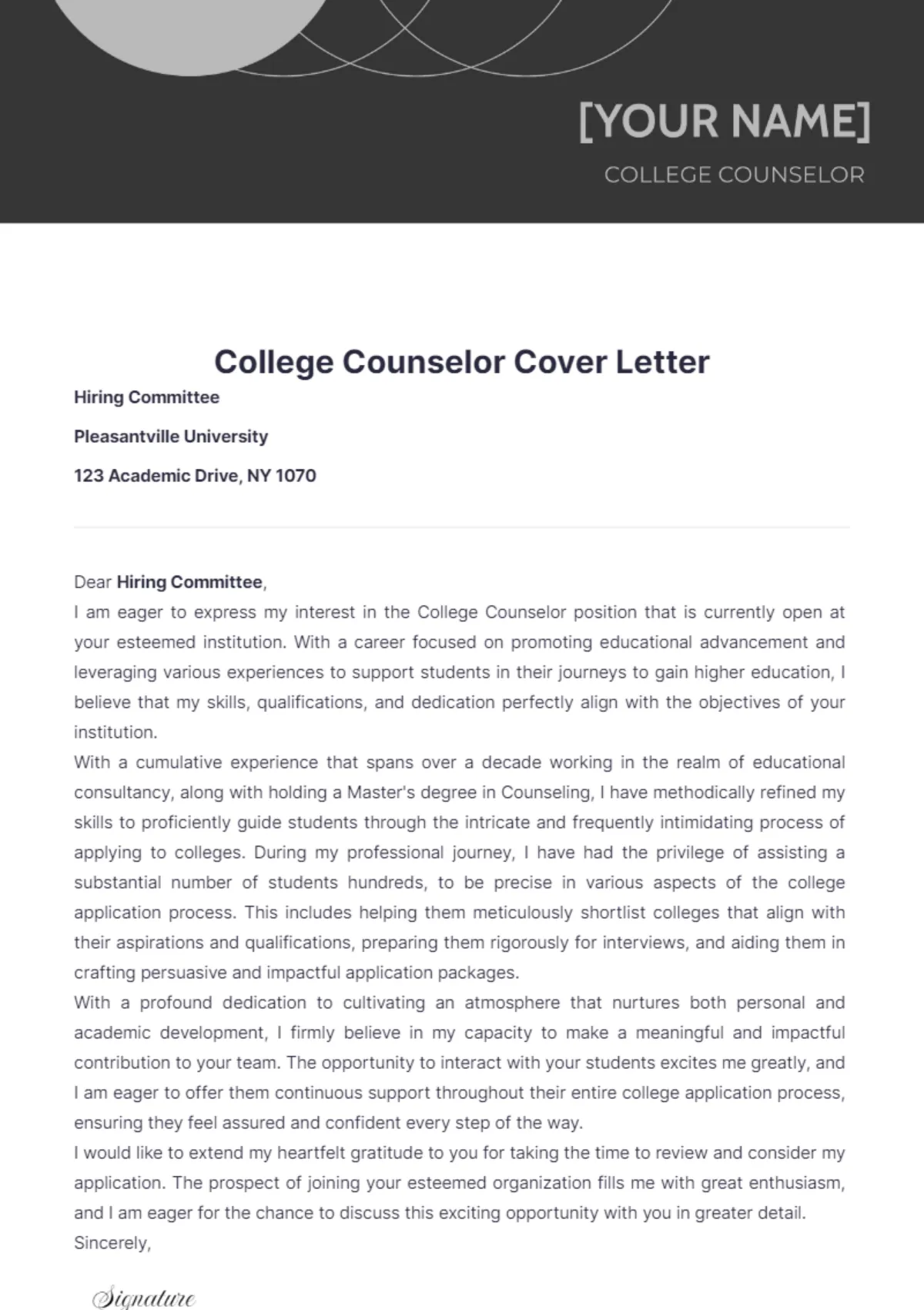
In the opening paragraph, provide a brief overview of your qualifications and career goals. State the specific position you’re applying for and express your enthusiasm for the opportunity. Highlight your most relevant skills and experience, and briefly mention what you hope to achieve in the role. Make it clear why you are a great fit. You can start with a strong statement that captures attention and makes the reader want to learn more about you.
Showcasing Your Relevant Experience
The main body of your cover letter should focus on your experience. Select the experiences that are most relevant to the job description and tailor your descriptions to highlight your accomplishments. Use action verbs to describe your responsibilities and achievements, and provide specific examples to illustrate your skills. Use clear and concise language to convey your expertise. Be sure to discuss your experience with different client populations, treatment approaches, and any specialized training you may have.
Quantifying Your Achievements
Whenever possible, quantify your achievements to demonstrate your impact. For example, instead of saying you improved client outcomes, state that you increased client satisfaction scores by a certain percentage. If you managed a caseload, state the number of clients you worked with or the number of sessions you conducted. Provide tangible evidence of your success, such as positive feedback, awards, or recognition you’ve received. This helps to show the real value that you bring to the table.
Demonstrating Your Skills and Qualities
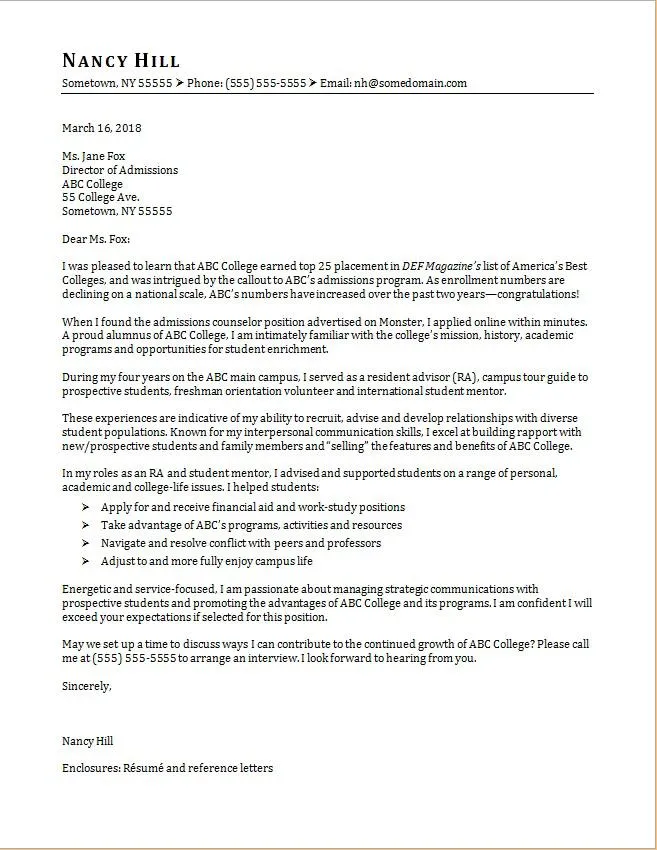
Highlight the soft skills that are essential for counselors, such as empathy, active listening, communication, and problem-solving abilities. Give examples of how you’ve demonstrated these qualities in your previous roles. For example, describe a challenging situation where you used empathy to connect with a client and build trust. Demonstrate your commitment to ethical practices and your understanding of confidentiality. Emphasize your ability to work collaboratively with other professionals and your commitment to continuous professional development.
Empathy and Communication Skills
Counselors must possess strong empathy and communication skills. Use your cover letter to demonstrate these skills. Show that you understand and can relate to the client’s experiences, using phrases such as “I understand the challenges you face” or “I can appreciate the difficult situation you are in.” Make sure to use clear, concise, and professional language. Describe situations where you effectively communicated with clients, families, and other professionals. Use the STAR method (Situation, Task, Action, Result) to show these skills in action.
Confidentiality and Ethical Practices
Emphasize your understanding of confidentiality and ethical practices. Counselors must adhere to strict ethical guidelines. State your commitment to maintaining client confidentiality and respecting professional boundaries. Mention any training you have received in ethics and any experience you have working within ethical frameworks. Describe your understanding of relevant laws and regulations. This demonstrates your integrity and professionalism, which are vital in counseling.
Tailoring Your Cover Letter to the Job
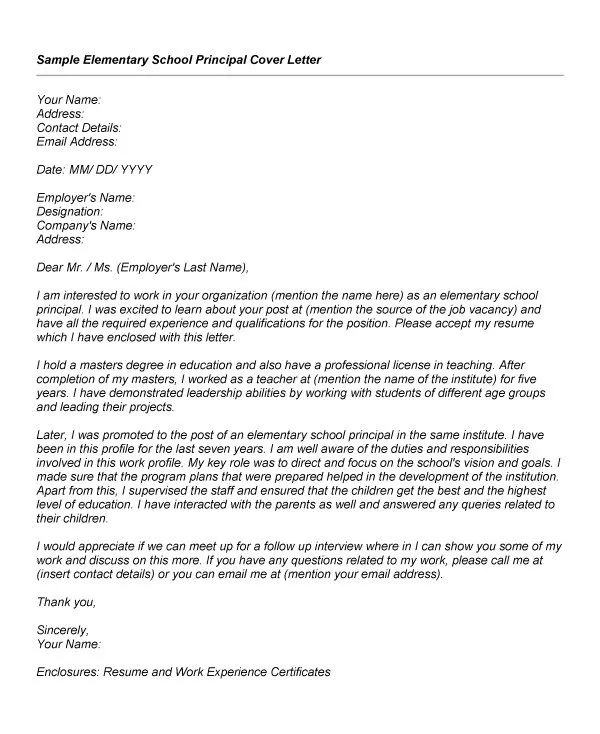
Researching the Organization
Before writing your cover letter, research the organization and understand their mission, values, and the types of clients they serve. Review their website, social media, and any available information about their programs and services. Tailor your cover letter to align with their specific needs and priorities. Explain why you want to work for that particular organization and how your skills and experience can contribute to their success. This shows your genuine interest and dedication.
Matching Your Skills to the Job Description
Carefully review the job description and identify the key skills and qualifications the employer is seeking. Then, in your cover letter, explicitly state how your skills and experience match those requirements. Provide examples of how you’ve demonstrated those skills in your previous roles. Make sure that you can give examples and provide evidence of skills required by the hiring manager. Avoid making assumptions about your skills; instead, provide evidence to show your abilities.
Using Keywords from the Job Posting
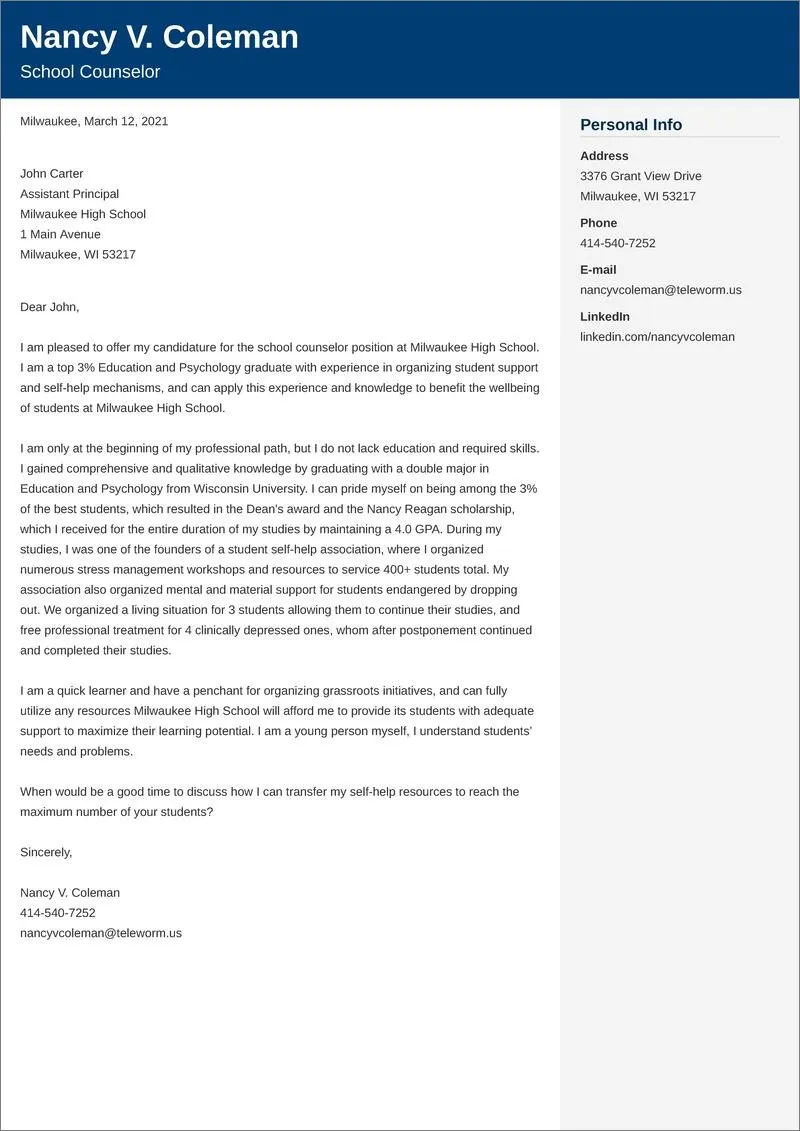
To ensure your cover letter gets noticed by applicant tracking systems (ATS), incorporate keywords from the job posting into your letter. Identify the key skills, qualifications, and experience mentioned in the posting, and use those terms throughout your cover letter. Be sure to integrate these keywords naturally into your writing, and don’t stuff your letter with keywords. Focus on the most important elements and show how you meet the specific requirements. This helps the employer quickly recognize your qualifications and increases your chances of getting an interview.
Structuring Your Counselor Cover Letter
Formatting Your Letter
Use a clean and professional format for your cover letter. Choose a standard font, such as Times New Roman or Arial, with a font size of 11 or 12 points. Use single-spaced lines with a space between paragraphs. Keep your letter concise and easy to read, typically limiting it to one page. Use headings and bullet points to break up text and make it more visually appealing. Make sure your letter is easy to scan, allowing the reader to grasp the most essential information quickly.
Proofreading and Editing
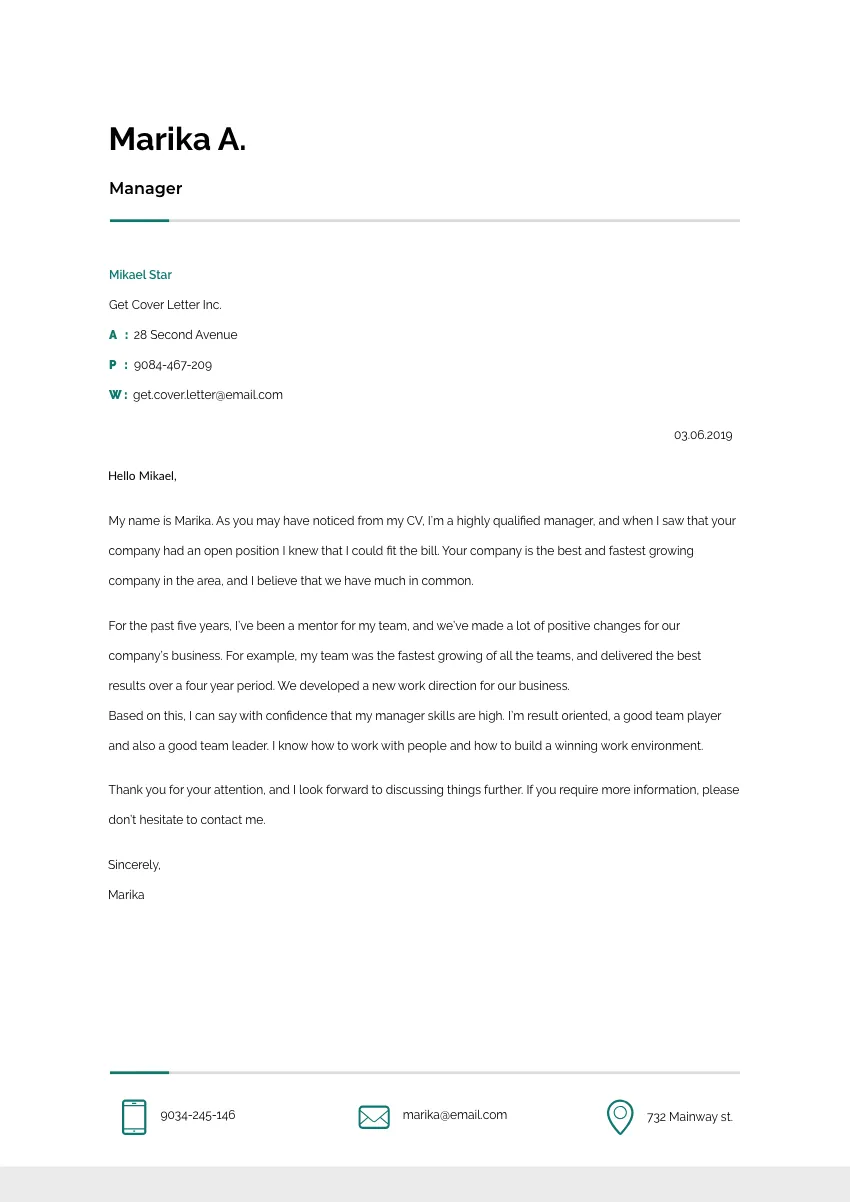
Before submitting your cover letter, carefully proofread it for any grammatical errors, typos, or inconsistencies. Read it aloud to catch any awkward phrasing or sentence structure issues. Ask a friend, colleague, or career counselor to review your letter for feedback. A polished and error-free cover letter demonstrates your attention to detail and professionalism, leaving a strong impression on the potential employer. Make sure the grammar and spelling are perfect. Also, make sure to check if the content flows well and reads smoothly.
Common Mistakes to Avoid
Generic Letters
Avoid using generic cover letters that could be sent to any employer. Tailor each cover letter to the specific job and organization. Demonstrating that you understand the employer’s needs and have taken the time to research the position shows your genuine interest and improves your chances of getting noticed. A generic letter may signal a lack of attention to detail and a lack of interest in the position.
Focusing on Yourself
Focusing too much on your needs and goals, rather than the employer’s needs, is a common mistake. Shift the focus to how your skills and experience can benefit the organization and help them achieve their goals. Demonstrate that you understand the employer’s priorities and how you can contribute to their success. Remember, the employer is looking for someone who can solve their problems and contribute to their mission.
Ignoring the Job Requirements
Failing to address the specific requirements outlined in the job description is a major mistake. Carefully read the job posting and highlight how your skills and experience match the requirements. If you fail to address these requirements, the employer may assume that you are not qualified or that you haven’t read the job posting. Focus on the requirements, then highlight how you have worked on each skill and experience.
Examples of Effective Counselor Cover Letters
Example 1 Counseling Position in School
In this example, you should showcase your experience working with children and adolescents in a school setting. Emphasize your knowledge of educational systems, child development, and any experience with crisis intervention or mental health programs. Provide details of your ability to collaborate with parents, teachers, and administrators. Highlight any special training or certifications you have in relevant areas, such as trauma-informed care or suicide prevention. Address your ability to provide support for students, in both individual and group settings, on a range of issues, including academic performance, social skills, and emotional well-being.
Example 2 Mental Health Counselor
When applying for a mental health counseling position, emphasize your experience providing individual, group, and family therapy. Highlight your knowledge of different therapeutic modalities, such as cognitive-behavioral therapy (CBT) or dialectical behavior therapy (DBT). Describe your experience working with diverse populations, including clients with various mental health conditions. You should also discuss your ability to conduct assessments, develop treatment plans, and monitor client progress. Make sure to discuss your experience with a variety of issues, such as anxiety, depression, or substance abuse.
Example 3 Substance Abuse Counselor
In this example, emphasize your experience working with individuals struggling with substance abuse. You can highlight your knowledge of addiction, recovery processes, and treatment approaches such as motivational interviewing. Demonstrate your ability to facilitate group therapy sessions, provide individual counseling, and develop relapse prevention plans. Mention any certifications or licensures you hold, such as a Licensed Alcohol and Drug Counselor (LADC). Also, mention your experience with different settings, such as inpatient, outpatient, or residential treatment facilities. Discuss your ability to assess clients, create individualized treatment plans, and provide support to clients and their families.
The Importance of a Strong Closing
Expressing Your Enthusiasm and Availability
Conclude your cover letter by reiterating your enthusiasm for the position and the organization. State your interest in an interview and express your availability for a meeting. Be sure to thank the reader for their time and consideration. Concluding with a strong statement, such as “I am eager to contribute my skills and experience to your team,” can leave a lasting impression.
Thanking the Reader
Always end your cover letter with a polite and professional closing. Thank the reader for considering your application. Show appreciation for the time they have taken to review your letter and resume. A simple closing, such as “Thank you for your time and consideration,” is a good way to show that you value the employer’s time. This leaves a positive impression and demonstrates your professionalism.
